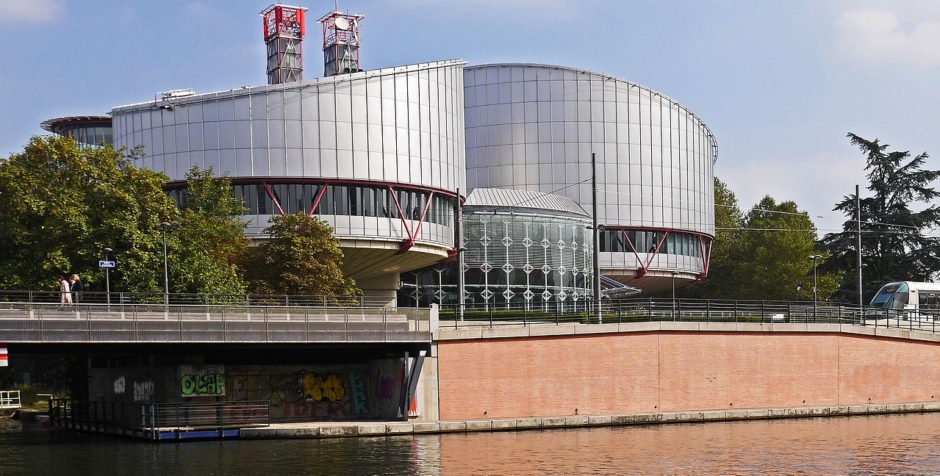

ECtHR: Is Prostitution a Freedom? About the case of M.A and others v. France
ECtHR: Is Prostitution a Freedom?
On June 27, 2023, the European Court of Human Rights (ECtHR) committed to addressing the question of the legalization of prostitution by declaring admissible the applications submitted by 260 individuals in prostitution[1]. This decision comes in a confusing international and european context regarding prostitution regulation. While the European Parliament[2] advocates for the establishment of a legal framework penalizing pimps and clients of prostitution to prevent human trafficking for sexual exploitation, organs of the Council of Europe and the United Nations call for "the full decriminalization of voluntary sex work"[3]. Currently, in the Council of Europe, the Parliamentary Committee on Equality and Non-Discrimination is drafting a resolution, initially entitled "Reintegration of individuals trapped in prostitution or subjected to human trafficking." Since a new rapporteur has taken charge of the project, Mr. Ben Chikha, general rapporteur on the rights of LGBTI persons, the project has radically changed its orientation. It is now titled "Protecting human rights and improving the lives of sex workers and victims of sexual exploitation." Consequently, the confluence of these events within European and UN institutions, coupled with the support of the Open society for the applicant associations before the ECtHR[4] and for the associations involved in drafting the Council of Europe resolution, is concerning. It raises fears of the European Court recognizing prostitution as legal work.
I. The applicant’s arguments
The challenge to the French system by pro-prostitution associations
Following its referral by 260 prostitutes on December 6, 2019, the ECtHR declared admissible on June 27, 2023, the cases of M.A and others against France, M.C. against France, T.S against France, C.D against France, and M.S against France. In these cases, the applicants seek the condemnation of the French law of April 13, 2016[5]; they are supported by various associations intervening in the case and committed to supporting prostitutes but also in favor of liberalization or legalization of prostitution. These include Act Up Paris, Act Up, Acceptess-T, Aides, Collectif des femmes de Strasbourg Saint Denis, Arcat, Autres Regards, Bus des femmes, ELCS, Fédération Parapluie Rouge, Grisélidis Action de santé communautaire, Inter-LGBT, Paloma, Le Planning familial, Les Roses d'acier, Médecins du monde, Sidaction, Trans Inter Action, and the STRASS, the sex workers' union. It is worth noting, regarding the action of NGOs, the significant financial commitment of the Open Society (OSF) through the Red Umbrella Fund created in 2012 by OSF and the Mama Cash fund.
The challenge by the applicants to the criminalization of clients
The applicants contest the French model because it has chosen to punish the clients of prostitution rather than the prostitutes themselves. From this penalization, they conclude that prostitutes are forced to engage in prostitution in secrecy and insecurity. In their own words, the law would put them in "a state of grave peril to the physical and psychological integrity and health of persons who, like them, engage in prostitution, and that this radically undermines their right to respect for their private life as well as that of their clients, in that it includes the right to personal autonomy and sexual freedom."[6]
They argue that, due to the incrimination of the purchase of sexual acts posed by articles 611-1 and 225-12-1 of the French Penal Code, the State would fail to fulfill its positive obligations of protection towards them, arising from the right to life and the prohibition of inhuman and degrading treatment. In this respect, the applicants allege a violation of Articles 2 and 3 of the Convention[7]. Furthermore, the applicants add that this incrimination would entail a violation of Article 8 of the Convention and Article 1 of Protocol I by invoking a right to personal autonomy and sexual freedom and ultimately the freedom to engage in professional activity[8].
A condemnation of France would have the effect of destroying the French system, yet protective of victims of prostitution.
II. Responses to arguments
First observation: international law prohibits prostitution
The corpus of international law prohibits prostitution in all its forms in the name of the protection of human dignity, reaffirmed after the war in the United Nations Charter and the Universal Declaration of Human Rights, which states that "the recognition of the inherent dignity and of the equal and inalienable rights of all members of the human family is the foundation of freedom, justice and peace in the world."[9]
As early as December 1949, states adopted the Convention for the Suppression of the Traffic in Persons and of the Exploitation of the Prostitution of Others. Prostitution is qualified as "trafficking in persons for the purpose of sexual exploitation"[10]. For the first time, an international treaty condemns prostitution based on human dignity. Indeed, the Preamble of the Convention states that "prostitution and the accompanying evil of the traffic in persons for the purpose of prostitution are incompatible with the dignity and worth of the human person and endanger the welfare of the individual, the family and the community"[11]. It establishes the responsibility for states to protect victims of this activity and to punish those who exploit it.
The Convention also prohibits any form of exploitation of prostitution by others, thus targeting pimping. It imposes an obligation on states to criminalize such acts[12]. The Additional Protocol to the United Nations Convention against Transnational Organized Crime to Prevent, Suppress and Punish Trafficking in Persons, Especially Women and Children, adopted in Palermo in 2000[13], specifies that the "exploitation of the prostitution of others or other forms of sexual exploitation"[14] falls within the definition of trafficking in persons[15]. Pimping is also condemned by the United Nations Convention on the Elimination of All Forms of Discrimination against Women. As for the buyers of sexual acts, like pimps, they are punished by international law. The Council of Europe Convention on Action against Trafficking in Human Beings, adopted in Warsaw in 2005[16], encourages states to criminalize clients and to deter demand. Its Article 19, entitled "Criminalization of the use of services of a victim," provides that "Each Party shall consider adopting such legislative and other measures as may be necessary to establish as criminal offences under its internal law, the use of services which are the object of exploitation as referred to in Article 4, paragraph a of this Convention, with the knowledge that the person is a victim of trafficking in human beings."
Second observation: most prostitutes are not consenting
Associations in favour of the liberalization of prostitution act as if all individuals in prostitution were voluntary and consenting. They accuse the French government, before the ECtHR, of carrying out a "total obliteration of the conventional right to personal autonomy and sexual freedom"[17].
Yet, for the most part, individuals in prostitution are nothing but victims of migrant trafficking (in 2023, 70% of prostitutes in Europe were migrant women), victims of drugs and drug trafficking, victims of the virtualization of prostitution (in 2021, 62% of prostitution occurred online[18]), victims of pornography and child pornography, or even victims of the sexual exploitation of minors[19]. The discourse carried by these associations in favour of the liberalization of prostitution denies this reality, and with full knowledge of the facts[20], the violence inherent in the reality of prostitution.
International law reminds in this regard that consent, in the context of the prostitution of a person, does not have to be taken into account given their vulnerability[21]. In the texts of law previously mentioned, widely ratified by the States, no distinction between "forced prostitution" and "consensual prostitution" is established. Such a distinction would indeed be impossible. Only sexual exploitation is retained. Human dignity is at the heart of the debate. In this regard, the French government recalls in its observations submitted to the ECtHR in the case of M.A and others against France that "the sexual motive should not allow infringements on human dignity [...]. The safeguarding of human dignity, which has constitutional value in France, requires respecting the human body, particularly against any form of enslavement and degradation."[22]
Third observation: France opts for a policy of "lesser evil"
The applicants criticize the French system for lacking coherence. Indeed, according to the written observations submitted to the Court by the applicants in the case of M.A and others, they reproach France for the existence of a "considerable gap [...] between the moral postulates displayed by the Government against the very principle of prostitution - described as violence in itself and an attack on dignity itself - and the reality of the rules and practices of French legal order"[23]. They argue that in France, prostitutes legally operate as self-employed workers, can obtain self-employment or individual company status, registered with the trade and companies register (RCS) and registered with the business tax service (SIE); they also have a SIRET number, are registered with URSSAF to pay social security contributions, and their income is taxable under income tax and VAT; finally, this activity is recorded by INSEE in the category "Other personal services. 96. 09. 12 Hostess services - prostitute services"[24].
Such reproach shows a lack of understanding of the objective pursued by French law and a lack of clarity on the reality of prostitution. The objectives pursued by the law of April 13, 2016, concerning the penalization of clients and the rules relating to the social and fiscal protection of prostitutes are complementary and not contradictory. They are articulated in such a way as to coexist two complementary objectives, which are limiting demand (with the 2016 law) and protecting victims (with health and tax standards) to achieve a final objective of reducing prostitution and the violence of its effects. It is in a spirit of lesser evil that French law thus regulates prostitution; and it is this same logic that explains, for example, the presence of "safe injection rooms"[25] in the fight against drugs. It is by no means to encourage the practice. As for the collection of tax on prostitution by the Republic, its obvious immorality and hypocrisy cannot constitute an argument in support of the legalization of the activity in question.
Fourth observation: there are more prostitute victims in countries legalizing prostitution
Countries allowing prostitution and the purchase of sexual acts on their territories show negative results in terms of protecting victims of prostitution, worse than in countries where only clients and pimps are penalized. Proof that this liberal system does not work. In the Netherlands, prostitution was legalized in 2000. However, since then, the number of victims of sexual exploitation continues to increase. To reduce exploitation, the government imposed, in 2013, the legal age for prostitution at 21 instead of 18. In Belgium, prostitution is legal, and clients are not penalized. Nevertheless, the number of prostitutes does not decrease. Suspected cases of minors being prostituted are becoming increasingly significant[26].
These figures prove that the liberalization of prostitution is not an effective response to preventing human trafficking and reducing the number of victims. The European Parliament also recalls in a resolution of September 2023 that the most protective system is the one that condemns clients and pimps (the Nordic system). It is applied in France, Ireland, and Sweden.
Fifth observation: ECtHR jurisprudence is lacking
For the first time, the ECtHR will be called upon to judge a case in which the applicants claim a right to prostitute themselves and, above all, declare themselves freely consenting.
The ECtHR has already faced the particular question of prostitution. However, it has never qualified it in terms of international human rights law. Unlike the Court of Justice of the European Union, which in 2001 defined it as a "remunerated service provision which [...] falls within the concept of 'economic activities'"[27], the ECtHR has not yet pronounced on it and has so far contented itself, in its decisions involving prostitution, with noting violations of Articles 3 (inhuman and degrading treatment), Article 4 (forced or compulsory labor), and Article 8 (private life) of the Convention[28].
The first time the ECtHR was confronted with prostitution was in the case of V.T against France, in 2007. On this occasion, the Court became aware of the divergences between the different state legal systems and noted the absence of European consensus on the subject[29]. In this case, the ECtHR did not consider it relevant to inquire whether prostitution itself was contrary to Article 3 of the Convention (prohibition of inhuman and degrading treatment)[30]. It simply stated that prostitution was "incompatible with the rights and dignity of the human person as soon as it is coerced"[31] and that, in its view, there was a violation of Article 3 of the Convention as soon as a person was compelled to begin or continue to prostitute themselves.
Later, in 2020, the Court ruled again on this same question in the case of S.M against Croatia. It declared that the perpetrators of "forced prostitution" are punishable under Article 4 of the Convention, which condemns forced labor, regardless of whether this activity occurred in the specific context of trafficking[32]. Through this case, the Court clarified its jurisprudence regarding human trafficking for sexual exploitation and brought trafficking within the scope of Article 4. It still does not provide a precise definition but recalls the three constitutive elements of trafficking, recognized by international law: an act (recruitment), means (coercion, fraud, and deception) and an objective (exploitation of others). Furthermore, the Court stated in this case that "force" covers several forms of coercive behavior, identified in its case law on Article 4 and in international texts such as those of the International Labour Organization[33].
Finally, on November 28, 2023, in the case of Krachunova against Bulgaria, the Court decided to grant the applicant the income from her prostitution activity, which Mr. X, the pimp, had confiscated from her. However, the defendant State had chosen at first instance not to grant it to her, considering it "contrary to good morals"[34] to seek compensation for such damage. According to the Bulgarian State, paying the amount received from her prostitution activity amounts to recognizing the legality of such a practice.
With the application of June 27, 2023, the Court is invited to pronounce on the notion of consent and on the precise qualification of prostitution. By abstaining so far from condemning prostitution in all circumstances, the Court's decisions suggest that prostitution could be a legitimate practice under certain conditions.
By Jeanne Roger.
_________________
[1] ECtHR, decision M. A. and others v. France and other applications, no. 63664/19, June 27, 2023.
[2] European Parliament resolution, 2022/2139 (INI) September 14, 2023.
[3] Press release, Working Group on Discrimination against Women and Girls; United Nations General Assembly, Guidance document prepared by the Working Group on Discrimination against Women and Girls, A/HRC/WG.11/39/1, December 7, 2023, page 3.
[4] ECtHR, decision M. A. and others v. France and other applications, June 27, 2023.
[5] LAW no. 2016-444 of April 13, 2016 aimed at strengthening the fight against the prostitutional system and supporting prostitutes.
[6] Observations in response and request for just satisfaction, case of M.A and others v. France and 4 other applications v. France, Spinosi SCP d'Avocat au Conseil d'Etat et à la Cour de cassation, December 15, 2021.
[7] Article 2, ECHR (right to life), Article 3, ECHR (right to freedom from inhuman and degrading treatment and forced labor), Article 8, ECHR (right to privacy).
[8] ECtHR, decision M. A. and others v. France and other applications, application no. 63664/19, June 27, 2023, § 1.
[9] Universal Declaration of Human Rights, Preamble, 1948.
[10] Convention for the Suppression of the Traffic in Persons and of the Exploitation of the Prostitution of Others, Preamble.
[11] Ibidem.
[12] Convention for the Suppression of the Traffic in Persons and of the Exploitation of the Prostitution of Others, Article 1 and Article 2. Article 1 states that the parties to the Convention shall "punish any person who, for the purpose of gratifying the passions of others: 1) recruits, entices or leads away another person, even if that person consents, into prostitution; 2) exploits the prostitution of another person, even if that person consents". Article 2 also criminalizes "any person who: 1) keeps, runs or knowingly finances or helps to finance a brothel; 2) gives or knowingly rents out, in whole or in part, a building or other premises for the purposes of the prostitution of another person".
[13]During the preparatory work for the Palermo Protocol, several national delegations wanted to introduce a distinction between victims of prostitution and people who prostituted themselves by choice, but it was finally decided not to adopt a definition for this notion, Court of Human Rights, S.M v. Croatia, June 25 2020, § 274.
[14] Additional Protocol to the Convention for the Suppression of the Traffic in Persons, Art.3.
[15] United Nations Convention on the Elimination of All Forms of Discrimination against Women, 1981, Article 6 "States shall take all appropriate measures, including legislation, to suppress all forms of traffic in women and exploitation of prostitution of women".
[16] Convention de Varsovie, 2005.
[17] Observations in response and request for just satisfaction, M.A et al v. France and 4 other applications v. France, Spinosi SCP d'Avocat au Conseil d'Etat et à la Cour de cassation, 2021, p.22, § 32.
[18] Fondation Scelles, expert report "Cyber-pimping: Internet, cyber-pimping: crumbling borders", 2021.
[19] European Parliament resolution of September 14, 2023 on the regulation of prostitution in the European Union: cross-border implications and impact on gender equality and women's rights (2022/2139(INI)), point Y.
[20] Open Society, "Understanding Sex Work in an Open Society", "just because sex work is work doesn't mean it's good work, many of them don't like their work but see it as the only option for making a living".
[21]Art. 1, Convention for the Suppression of the Traffic in Persons and of the Exploitation of the Prostitution of Others.
[22]Cases n°63664/19, M.A and 256 others v. France, n°64450/19 M.C v. France, n°2438/20 T.S. v. France, n°24391/20 C.D. v. France and n°24393/20 M.S. v. France, Initial Observations of the Government, October 7, 2021, §151 and §153.
[23]Observations in response and request for just satisfaction, case of M.A and others v. France and 4 other applications v. France, Spinosi SCP d'Avocat au Conseil d'Etat et à la Cour de cassation, December 15, 2021, p. 31.
[24]Observations in response and request for just satisfaction, case of M.A and others v. France and 4 other applications v. France, Spinosi SCP d'Avocat au Conseil d'Etat et à la Cour de cassation, December 15, 2021, p. 32.
[25] As far back as the 13th century, Louis IX tried to ban prostitution. Having failed, he opted for a more pragmatic policy and instituted brothels. This is what French law seeks to establish.
[26] Fondations Scelles, Prostitution by country, Belgium.
[27] ECJ, November 20, 2001, Aldona Malgorzata Jany and others v. Staatssecretaris van Justitie, Case C-268/99, ECR p. I-08615, paragraph 49.
[28] ECtHR, O.G v. Greece, January 23, 2024; ECtHR, S.M v. Croatia, June 25, 2020; ECtHR, V.C v. Italy, February 1, 2018.
[29] ECtHR, V.T. v. France, September 11, 2007, no. 37194/02, § 24.
[30] ECtHR, V.T v. France, September 11, 2007, §§ 24-27 and 35. The Court "did not consider it relevant [...] to investigate whether recourse to 'consensual prostitution' was contrary to the Convention".
[31] ECtHR, V.T v. France, September 11, 2007, § 25.
[32] ECtHR, S.M v. Croatia, June 25, 2020, § 245 and 198.
[33]ECtHR, S.M. v. Croatia, June 25, 2020, § 301.
[34]ECtHR, Krachunova v. Bulgaria, November 28, 2023, E, p.73.













